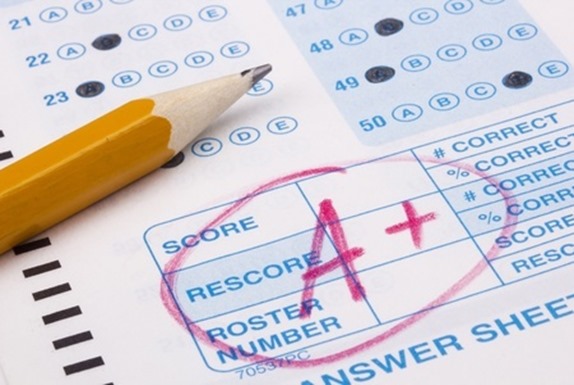
Remember when you were in high school and you got an A for any number grade over a 90? Well, that hasn’t been the case in North Carolina for many years! Citing concerns that the state’s seven-point grading scale puts NC high school students at a potential disadvantage in the college admissions process, the Wake County School Board met in October to review a potential change to that system. As a result of that review, the Board voted on October 2nd to transition to a ten-point grading scale starting with the class of 2019. That means that freshmen entering high school in 2015 will be graded using a ten-point scale.
The debate over a seven-point scale versus a 10-point scale goes back a number of years, with parents and educators concerned that North Carolina high school students are at an unfair disadvantage against students from school districts that use a 10-point scale. Heath Morrison, Superintendent of the Charlotte-Mecklenburg school system, wrote a letter to his counterparts in other districts saying the 7-point scale put North Carolina students at a “distinct disadvantage” in applying to colleges. Morrison said the 10-point scale “would lead to more students on the honor roll, higher graduation rates and more students taking Advanced Placement classes.”
Currently, students who have a 93 or above receive an A, but students who receive a 91 or 92 only receive a B. Advocates for the grading scale change have made a simple but compelling argument. A student in Atlanta who earns a grade of 91 in all of his classes would have a 4.0 average. In North Carolina, that same student would have a 3.0 GPA.
“I’ve been waiting for this change for a very long time,” states Fuquay-Varina principal Jonathan Enns. “I haven’t been a proponent of the 7-point grading scale because I feel that it forced the hand of some educators to dilute material in an effort to make sure students passed their courses.”
With the new scaling structure, students with a 90 or above will receive an A, which will improve many students’ GPAs over time. Justin Stoehr, a Cary parent, lobbied state officials to change the system for more than a year, stating that “large public universities in Texas, for example, aren’t looking at applicants’ GPAs and figuring out whether their high school was on a seven- or 10-point scale.” Students attending North Carolina colleges and universities were on an even playing field, but the concern about students trying to compete for spots in out-of-state institutions was justified.
Part of the process of reviewing this change was how it would be implemented in 2015. The State Board of Education wrestled with whether to phase the change in with the next incoming class of freshmen, or to change everyone in the system over at the same time. Concerns about grading students on different scales in the same classes were a big issue. “You could have a sophomore sitting in the class with a 68 and flunk, and a freshman with a 60 and pass,” school board vice chairman Tom Benton explained. State officials justified the phasing system saying that “for the purposes of class rank it would be fairer to make sure that cohorts of students used the same grading scale.”
The other burning question was how the new student management system, PowerSchool, would handle parallel grading systems. PowerSchool has been problematic since implementation a few years ago, and teachers questioned how it could handle the extra burden of tracking different students on different scales. Wake County Deputy Superintendent Cathy Moore explained that “[state officials] seem to think that PowerSchool can handle that.” It remains to be seen how each county will handle the transition, but the general statewide consensus is that this is the right move for our kids at the right time.
This debate was peppered with concerns about the potential of this change to effectively lower standards across the state. “There’s an ongoing concern that any time we’re fiddling with standards, anytime we’re fiddling with accountability, that we’re not tweaking it to lower standards,” said John Tate, a former Charlotte-Mecklenburg Schools board member who now sits on the state Board of Education. “I think if we build sufficient rigor in the curriculum… moving to the 10-point sale, if done right, will not relax standards.”
Enns actually feels that the 10-point scale provides an opportunity to enhance the rigor of secondary education. “I think it will, over time, improve pass rates in some classes because the greater point spread between letter grades,” he explains. “I also think we will have the opportunity to re-evaluate the rigor in our curriculum and even increase standards in the future.”
High school grading scales are regulated and approved at the state level, but the grading scales at elementary and middle school scales are set at the local level. There has been a push to change the grading scales in Wake County elementary and middle schools for a while, but officials have been reluctant to do so when the high school scales could not change as well. Now that the high school grading system is approved for change, and with the State School Board recommending that all schools adopt the 10-point scale, it is highly likely that Wake County will re-examine the grading scales at its other schools.